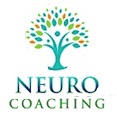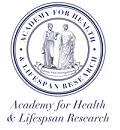Background
The modern world is in the grip of a crisis.
More people (from age of 30 to 80) are
anxious, depressed and medicated than at any
other time in our history.
Indicators of despair—depression, suicidal
ideation, drug use and alcohol abuse—are
rising among Americans in their late 30s and
early 40s across most demographic groups,
according to new research by Medicine,
Health and Society and Public Policy Studies
at Vanderbilt University. These findings
suggest that the increase in “deaths of
despair” observed among middle-aged Baby
Boomers (born 1946-1964) in recent studies
are impacting the youngest members of
Generation X (born 1974-1983).
Results (Neuroscience New, April, 2019)
suggest that rising despair among the young
adults now reaching midlife cuts across
racial/ethnic, educational, and geographic
group.
One of the keys to our well-being lies in
how our brains culturally perceive the
world. The latest research explains that our
cultural beliefs are even more powerful than
our genes, and demonstrates how these belief
systems set us up for self-sabotaging
behavior that negatively effects our
well-being.
It’s not easy being human. It never was,
really.
The Rise of Naturalism
-and Waves of Angst
Some scientists, like the late, extremely
popular Stephen Hawking, argue that we have
no soul, no fixed self, and no inherent
purpose. We exist simply because we exist,
tiny specks on a small planet in an infinite
universe, and not because a god made the
Earth for us. This conception, called
“naturalism,” leaves many people feeling
deeply uneasy—consciously or
unconsciously—and casting about for meaning.
We are busy building some security and
sacrificing our present for the future in an
increasingly complex world.
Much of society is suffering a crisis of
“neuroexistentialism” -expressed anxiety.
More and more people are questioning the
meaning of their life and what difference
they are going to make. Life is hard, it’s
difficult so it’s easy to be swamped by
doubts and existential angst.
Today’s profound cultural, social changes and
political polarization continue
to provoke widespread malaise and ultimately
prompt a rehabilitated and reconstructed
view of what it means to be human.
This contemporary angst suggests that
introspection, or self-knowledge, can’t
really reveal the mind, and that death is
the end for us all. If the brain’s processes
give us our experience of life and there is
no “immaterial spirit” or soul, then when
the brain stops functioning, nothing follows
life, and nothing “survives” us. Along with
this understanding of ourselves as animals
governed by natural laws and physical
mechanisms comes another loss—the sense of
agency or free will.
We don’t necessarily know why we feel
adrift, but for many people who place their
faith in knowledge and don’t believe in a
god, it’s become more difficult to believe
their lives matter. Scientific findings are
undermining many traditional notions that
previously gave people a sense of
specialness, a feeling that who they are
matters, and that the self is real.
Increasingly, however, scientists are
finding that the self is a kind of necessary
illusion manufactured by the brain and often
more fragile than we’d like to imagine.
Meanwhile, suicide, depression, and anxiety
are on the rise. In the US, the Centers for
Disease Control and Prevention last year
revealed that deaths by suicide rose by 25%
since 1999 across most ethnic and age
groups. This trend isn’t just a result of
lack of adequate mental health services.
We’re facing a new, contemporary “crisis of
meaningless.” In order to keep existential
anxiety at bay, we must find and maintain
perceptions of our lives as meaningful. We
are a species that strives not just for
survival, but also for significance. We want
lives that matter. It is when people are not
able to maintain meaning that they are most
psychologically vulnerable.
The quest for significance that has helped
us survive has also rendered us
distinctively ruminative. Humans seek
meaning, but it’s harder than ever to feel
our lives matter for a number of reasons
including increased alienation, smaller
families, and a declining belief in
religion.
We don’t yet have an understanding of what
this means for us as individuals or a
vocabulary to discuss the new
self-as-illusion. The old ideas are
difficult to abandon because they have been
around for thousands of years. The new,
alternate view of humanity makes some people
feel lost and alone, leading them to
conclude that a meaningful life is
impossible.
HOPE
Quantum physics concludes that time doesn’t
exist and neither do we physically. And,
there’s no essential meaning in the
universe, as evidenced by both its vastness
and randomness. So, how can a life matter on
a personal and human scale and what hopes do
we have for finding a higher purpose or
meaning in the universe?
But our lives and societies matter simply
because we exist and coexist and appreciate
meaning. So we can act purposefully even if
we are not part of some grand cosmic plan.
Psychologist and cognitive neuroscience
luminary M. Gazzaniga, head of the
University of California at Santa Barbara’s
SAGE Center for the Study of the Mind,
argues that there’s no problem presented by
the naturalist view of humanity. We’re
responsible and moral because our brains
have evolved capabilities that allow us to
be.
We reason, remember, perceive, and judge as
a result of cognitive mechanisms. And
because we have these abilities, we’ve also
developed social practices that demand that
we think and be responsible for each other.
The universe may be random, and cause and
effect may not always be related on a
mechanistic level, but within the human
experience, we have certain obligations and
the capability to meet these.
As Thomas Clark, of Brandeis University’s
Institute for Behavioral Health explains, we
don’t need god to be good. There are
scientific bases for moral behavior. Clark
writes, “For one thing, science can explain
why we are moral animals, moral to such an
extent that no amount of science will end up
debunking our hard-wired intuitions about
ethics.”
There’s evidence that altruism, cooperation,
compassion and affection are “biologically
installed,” so we don’t require a higher
power to force us to consider others’ needs.
“The very worry about moral foundations is
testament to the reality of our moral
natures, so learning they are modulated by
such humble chemicals as oxytocin and
vasopressin isn’t likely to render us
morally incapacitated,” he argues.
CONCLUSION
There is a “new
alliance” between neuroscience and
psychotherapy that is now taking place.
We need to make use of the knowledge and
insights of the behavioral, cognitive, and
neurosciences to satisfy our existential
concerns and achieve a level of flourishing
and fulfilment. Ignoring the scientific
evidence of our reality isn’t going to
resuscitate dated notions of god. We need to
better understand our self, our human
specialness to make life more meaningful. We
need to learn how to transform our anxiety
into a positive energy form that empowers us
to life a richer, more productive,
healthier, happier life….a life that
matters.
The key is to find
our purpose and sense of being and then we
can make life meaningful.
Our unique Neurocoaching course teaches our students how to
use the latest evidence-based, proven scientific tools and
techniques to help their clients reset their mindset
empowering them to fulfill their potential and
live a life on purpose and with
greater meaning.
Personal Performance
Focus and emotional balance is the key to
performance in all areas. A person’s ability
to focus and concentrate is hindered when
stress and tension is carried in the body.
Our unique course also teaches students how
to increase their client's energy levels,
resilience and ability to deal with pain,
stress and mental clarity. As a by-product,
decision making capabilities, focus,
productivity, competency and IQ are also
enhanced.
Harnessing the principle of neuroplasticity
(the ability of the brain to change itself)
the course’s techniques and tools focus on
accessing the subconscious mind and the
limbic section of the brain that is the
critical link to the brain-mind-body union
and how we can affect neural changes.
The targeted behavioral intervention's
objective is to achieve perceptual
self-awareness and learn powerful,
self-empowering, brain-mind-body change
techniques for rejuvenation, health,
happiness and well-being.
Students also learn how to harness the power
of their client’s Brain and Mind to effect
sustainable self changes.
- The process of developing deep,
self-awareness and learning from one’s past,
present, and future.
- The ability to self-assess and
self-change.
As a student you will acquire easy-to-use,
practical, neuropsychological tools that
incorporate the following key psychological
principles and techniques :
Self-actualization, Self-Concept, Self
Esteem, Self Identity and Working in the
Conscious, Unconscious and Super
Consciousness Zone.
A key part of our approach is also about how
to use our proprietary experiential mental
exercises which help boosts endorphin levels
that stimulate and balance the Immune system
and promote the repair of cells and tissues
to build a healthier, stronger younger
version of the brain. After just several
days of regular (at home) practice of their
custom designed, brain-mind-body change tool
(15 mins a day) clients typically report
decreased anxiety, better mental clarity,
more restful sleep, improved mood, and a
host of other benefits without side effects.
Other Benefits
Among other things, the courses tools and
techniques help improve mental and physical
performance, IQ and EQ, intuition, stamina,
creativity, relationship satisfaction, and
happiness.
|
|







